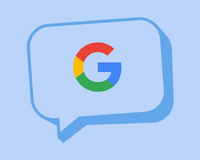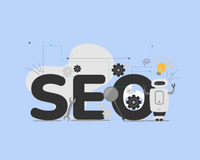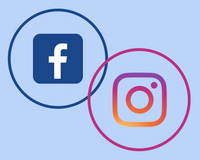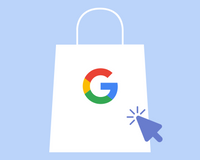Facebook is the most popular social media platform in the world with nearly 3 billion active users. The company has a 20% share in the digital advertising business, making it the second largest online advertising platform, behind only Google. With these statistics in mind, it makes sense that a business' advertising revenue is largely dependent upon the success of its Facebook ads. In this article, we discus a few reasons why should advertise on Facebook.
Why Advertise On Facebook
As the most popular social media app, Facebook's parent company, Meta, has seen a dramatic increase in revenue in recent years climbing from $86 billion in revenue in 2020 to over $118 billion in 2021. Facebook advertisements are targeted, specific, and diverse. When optimized and performed successfully, they can increase a brand's visibility, revenue, and influence. The following are a few of the many reasons for which 3,000,000 active businesses advertise on Facebook.
Facebook's Target Audiences
Facebook offers advertisers a wealth of data including but not limited to:
- Gender
- Age
- Location
- Language
- Interests (pages you've liked or events you've posted about)
- Education
- Search History
- Interests
- Job Title
- Salary
- Political Affiliation
- Recent Purchases
Companies advertising on Facebook can target their products and services to reach users that match certain qualifications. For example, a University advertising their Master's degree in teaching might users who are between the ages of 20 and 30, have a Bachelor's degree, and hold a job title similar to teacher.
Affordability
The underlying goal of any advertising campaign, basic or advanced, is to maximize revenue and minimize costs. Like many other advertising platforms, Meta Ads are free to all businesses. The only associated cost is the amount of capital you choose to use to fund your ads.
Specificity
Marketers who choose to market on Facebook have a range of advertising objectives at their disposal. These objectives can help a business prioritize different goals for different ads. For example, an advertisement about a recent holiday can be targeted for post engagement, while an ad that includes an image of a new product can be targeted for lead generation or conversions.
Ads can also be set up for different “Ad Objectives” including the following:
- Boosted ads that are targeted to improve engagement with rich, high-value content.
- Website ads that are targeted to increase traffic to certain pages or blogs.
- Call-to-action ads that work to influence viewers to interact with your brand in a specific way.
- Page promotions that are designed to improve engagement with your company’s Facebook page.
Access To Meta's Platform Data
The Facebook Ad Manager gives businesses access to a wealth of performance insights and data points. These statistics can be used to improve ad text and images, inform future advertising campaigns, and help users better manage their advertising budget.
Showcase Your Brand Using Stories
Snapchat may have been the first platform to implement story content, but it will certainly not be the last. When Facebook saw the success and popularity of Snapchat's story feature, they worked quickly to add it to their own apps. Instagram first launched its story feature in 2016, and has since expanded it to include modifications like close friends, pinned stories, and multiple editing tools. Stories on Facebook are popular among advertisers for the following reasons:
- Stories disappear 24 hours after they are posted, making them useful for special, infrequent sales and promotion.
- Stories allow advertisers to pair an eye-catching image with a short blurb of text.
- Using stories can help a brand reach a new audience that doesn't scroll down to see posts in their feed.
Higher Engagement Rates
According to recent data, the average Facebook engagement rate is .064%. While this may seem like a microscopic number, it rises considerably to over 1% for companies who run successful campaigns. The average Facebook user spends more than 30 minutes per day on the platform and sees more than 25 individual ads each day.
You can increase your Facebook engagement rate by specializing your content to attract views, likes and shares. The content forms most likely to receive high levels of engagement include branded graphics, stories, trending topics, infographics, and posts that pose questions to viewers.
Need help creating an eye-popping ad? Please contact us.
Facebook Retargeting
Retargeting is a vital aspect of online advertising that allows marketers to edit and mold their advertisements in an effort to reach specific users. Facebook advertisements can be targeted towards users who previously visited the company site, used an app, or interact with a brand in another way.
Retargeting is usually much more cost-effective than prospecting ads.
Measure Your Success Using Facebook Insights
The "Insights" tab under the Facebook Ad Manager is a comprehensive tool that offers advertisers the ability to measure the effectiveness and conversion rate of their ads. This tab includes multiple tools and data which measure page views, page links, likes, revenue, and engagement.
The Facebook insights page offers advertisers aggregate information on their various target audiences. Let's assume you want to raise awareness and engagement for your online water bottle business. You've been using Facebook ads with moderate success, but want to take your ad game to the next level using more specific data. Using Facebook audience insights, you can get a wealth of aggregate and anonymous information, including the following:
- Demographics (Age, gender, education, lifestyle, relationship status, job, household)
- Page likes and the most-liked pages in certain categories
- Facebook usage: How frequently people in your demographic categories log into the Facebook app and access the website.
- Purchase activity such as past purchases, purchase methods (store, online, advertisement link), and purchase frequency.
Takeaway
Setting up a successful Facebook advertising campaign requires a unique combination of effort, research, and marketing-whit.
After your set up your Facebook ad campaign, you can then retarget it towards specific users or measure your campaign's success using Facebook Insights.





